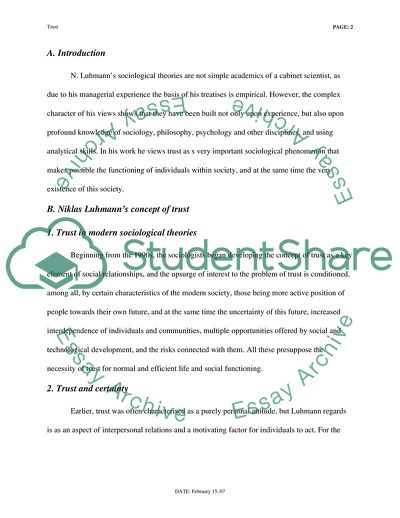Cite this document
(Niklas Luhmanns Concept of Trust Term Paper Example | Topics and Well Written Essays - 1612 words, n.d.)
Niklas Luhmanns Concept of Trust Term Paper Example | Topics and Well Written Essays - 1612 words. Retrieved from https://studentshare.org/sociology/1706167-treatise-about-the-term-trust-by-niklas-luhmann
Niklas Luhmanns Concept of Trust Term Paper Example | Topics and Well Written Essays - 1612 words. Retrieved from https://studentshare.org/sociology/1706167-treatise-about-the-term-trust-by-niklas-luhmann
(Niklas Luhmanns Concept of Trust Term Paper Example | Topics and Well Written Essays - 1612 Words)
Niklas Luhmanns Concept of Trust Term Paper Example | Topics and Well Written Essays - 1612 Words. https://studentshare.org/sociology/1706167-treatise-about-the-term-trust-by-niklas-luhmann.
Niklas Luhmanns Concept of Trust Term Paper Example | Topics and Well Written Essays - 1612 Words. https://studentshare.org/sociology/1706167-treatise-about-the-term-trust-by-niklas-luhmann.
“Niklas Luhmanns Concept of Trust Term Paper Example | Topics and Well Written Essays - 1612 Words”, n.d. https://studentshare.org/sociology/1706167-treatise-about-the-term-trust-by-niklas-luhmann.


